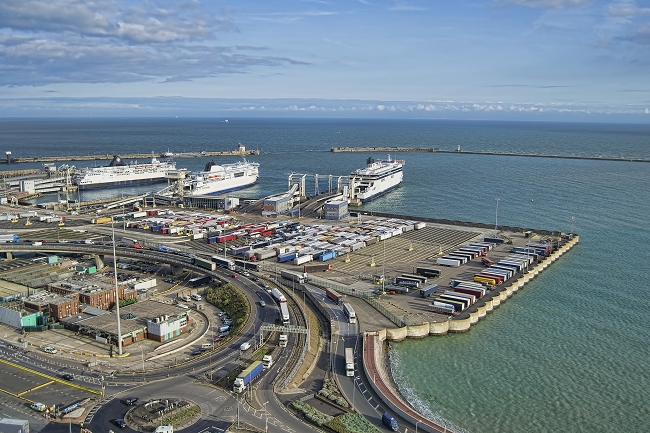
The port of Dover will need the support of inland customs centres to manage an estimated 200 million additional customs declarations per year when the Brexit transition ends on 31 December 2020.
The port is already short of space and so would not be able to handle these declarations by themselves, according to the FT.
There is an expectation that checks will be conducted at inspection zones away from the port, or in the warehouses where goods arrive.
According to the FT report, existing customs centres near Ashford and Folkestone could be used, but more may need to be built to handle the additional paperwork.
Different era
The port of Dover was previously able to handle customs declarations for European trade, before the single market was introduced in 1993. However, it is no longer fit for this purpose, according to John Lucy, manager for international transport & trade procedures at the Freight Transport Association.
He told the Daily Update (8 June) that before 1993 there would have been more 200 customs agents at the port, compared with under one tenth of that today. There were also “much lower volumes” of trade at the time.
“The port has been redesigned for freight to embark or disembark ferries as a fast drive-through process,” he said. It is therefore not set up to facilitate customs checks.
Further, there is “a huge shortage” of the customs intermediaries who will be needed to complete the checks, and this is being “exacerbated by the COVID-19 crisis which has delayed recruitment and training”.
Ro-Ro traffic
Dover has been set up for “roll-on, roll-off” (Ro-Ro) traffic between the EU and UK and during peak periods 10,000 trucks go through it each day. The FT reports that it takes only four hours for carriers to leave the port upon disembarking the ferry.
The UK’s draft Free Trade Agreement for its future relationship with the EU contains facilitations for Ro-Ro freight and EU officials have said the two sides are “not far apart” on this area. However, an overall EU-UK deal still needs to be agreed.
The UK is also looking to bolster Ro-Ro capacity at ports on the east coast including Felixstowe and Harwich in order reduce its reliance on the Dover-Calais route for this form of transportation.
Problems inland
Nonetheless, Lucy says a lack of customs intermediaries and knowledge will cause issues at Ro-Ro ports generally.
“These problems are the same for all Ro-Ro ports, it’s just that the Dover straight carries the biggest volume and therefore any minor delays to traffic flow quickly cause major problems inland,” he said.
“We need only think of previous issues during times of strikes or bad weather.”

